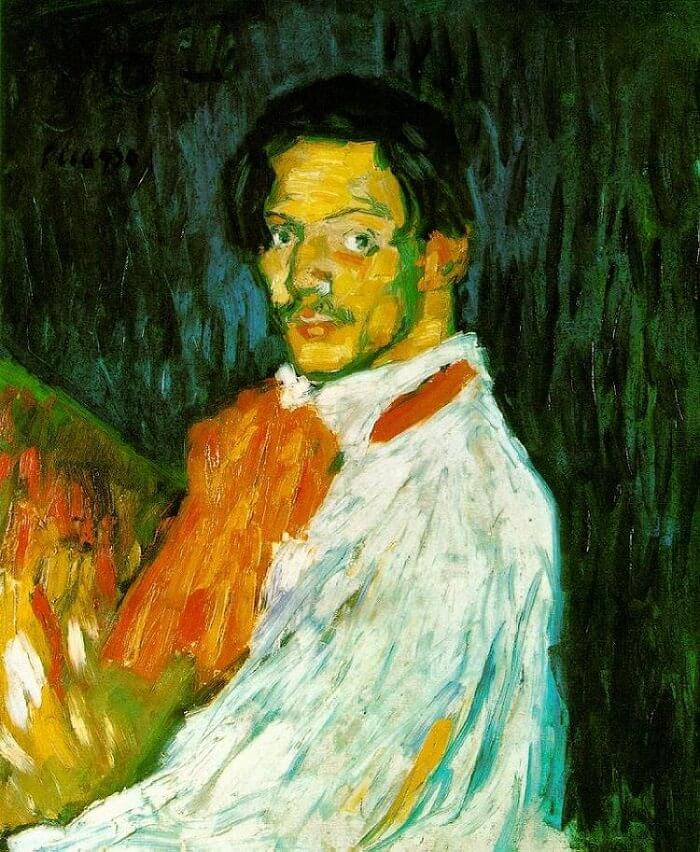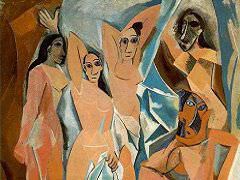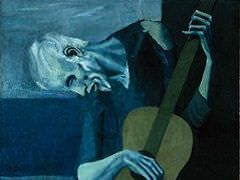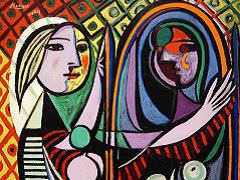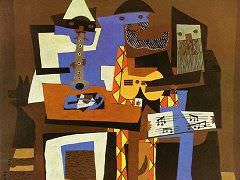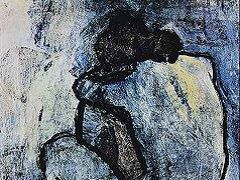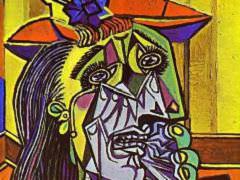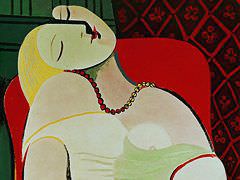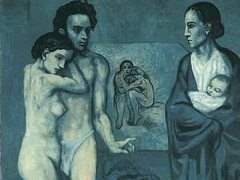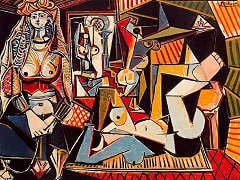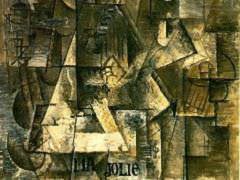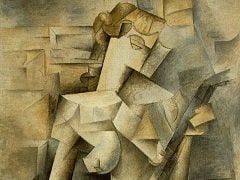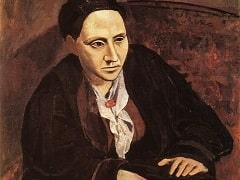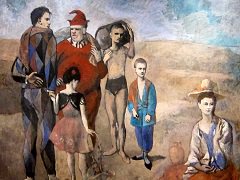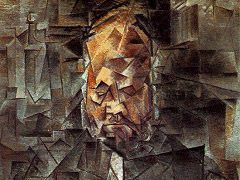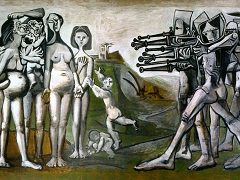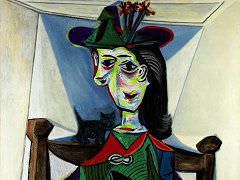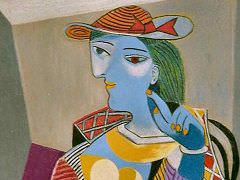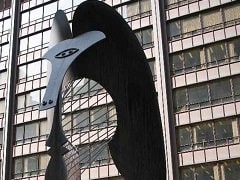Yo Picasso, 1901 by Picasso
The 19-year-old Picasso left Barcelona in the summer of 1901 for his second visit to Paris, full of confidence and eager to prepare for his first one-man exhibition which, through his friend and dealer Pere Manach, was to take place in
Ambrose Vollard's prestigious gallery on the rue Lafitte.
In preparation for this important show, Picasso threw himself into a frenzy of activity, painting a wide range of subjects that he hoped would establish him as a rising young star and an important painter of modern life. As this
outstanding work testifies, at some point during this extremely hectic period for the artist Picasso must have reached for the nearest available blank surface, and attempted to capture the essence of the portrait with which he would
announce himself at the Vollard exhibition: the self-portrait he later proudly inscribed, Yo Picasso. ('I, Picasso').
This outstanding study marks the beginning of the emergence within Picasso's work of his own powerful and innovative personality. Within six months, the joy and confidence of his earlier virtuoso style of painting would be reduced to
the stark monochromes and flat texture of his Blue Period.
Yo Picasso was more inventive and more serious in its intention than any other work in the historic exhibition. The first work listed in the exhibition catalog, it was clearly conceived as a presentation piece to announce
Picasso's arrival on the world stage. Executed in June 1901, Yo Picasso is the first of that year's three self-portraits and shows Picasso viewing himself with pride and confidence. It asserts the name Picasso had chosen to use,
not the paternal name of Ruiz that he had finally abandoned only the year before. 'Have you ever noticed that there is a double in Matisse, in Poussin, in Rousseau?' the young artist had once
remarked to the dismay of his uncle, Salvador Ruiz.
Prophetically, Yo Picasso is the first of Picasso's self-portraits to make dramatic use of the artist's powerful eyes. This, perhaps, leads to the psychological depth explored in his two other 1901 self-portraits. In hindsight it is
easy to see how the innovation employed in this highly personal painting set him on his path towards the Blue Period.
Following a compositional tradition established by the greatest artists, including El Greco, Peter Paul Rubens and Poussin, Yo Picasso shows
the artist seated before his easel. Dressed in the garish and slightly eccentric orange scarf he favored at the time and a brilliant white shirt - both of which clash magnificently with the vibrant blue background - Picasso glances out
of the painting with a look of confident mastery.
Perhaps most striking about this work, however, is the artist's extraordinary ability to capture the very same intensity of the stare and look of determined self-confidence of the young Picasso. The assured execution of this work
displays a bravura that rivals his later brushwork, establishing this exquisite sketch as one of the most important documents from the early career of the young Spanish artist who wished the world to know him by the single name: Picasso.

